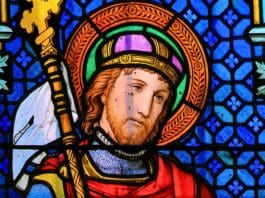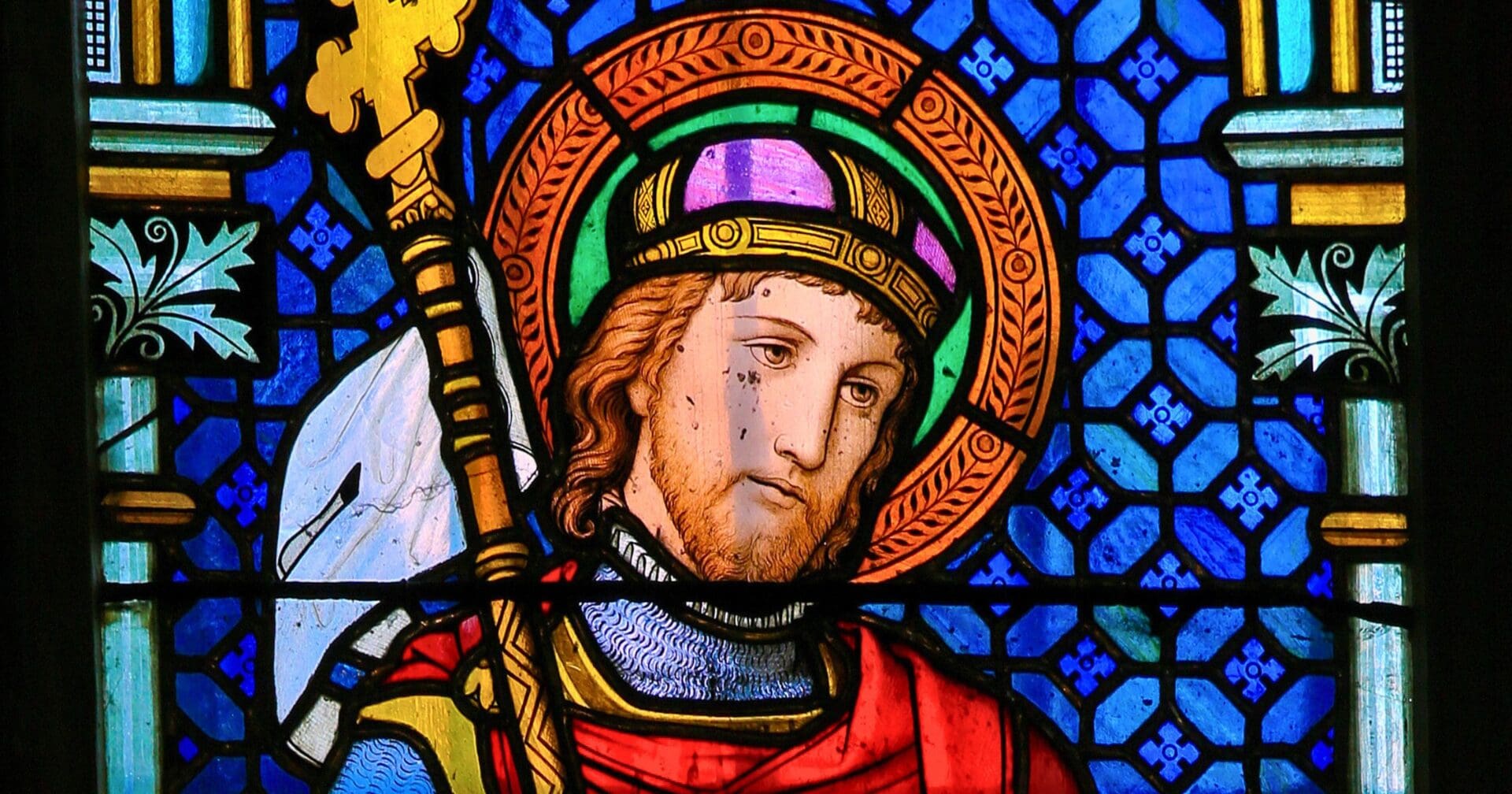
Saint Wenceslaus was born circa 907 near Prague in present-day Czech Republic.
After the tragic death of his father in battle when Wenceslaus was only 13, his mother, the pagan Drahomira, ascended to the throne. She quickly ushered in an era of anti-Christian governance, a stark contrast to the Christian upbringing that Wenceslaus received from his grandmother, St. Ludmilla.
The tension between Drahomira and Ludmilla reached a boiling point when the former orchestrated the murder of the latter. Drahomira’s rule became increasingly oppressive in the name of young Wenceslaus. Recognizing the toll this was taking on his people, at 18, Wenceslaus overthrew his mother, taking the reins of the kingdom himself.
As a monarch, Wenceslaus collaborated closely with the Church. He tirelessly worked to transform his pagan homeland. Ending the persecution of Christians was top of his agenda, followed by constructing churches and recalling banished priests. His reign was marked by piety and philanthropy, earning him the affectionate title “Good King” from his subjects.
Wenceslaus led a life of chastity, and his compassion for the downtrodden was well-known. Not only did he provide for the poor, but he also personally attended their funerals, freed captives, and visited prisons. He took upon himself tasks like preparing wheat for altar breads and pressing grapes for ceremonial wine. Legend has it that in winter, he would traverse snowy terrains barefooted to churches, leaving a trail of bloodied footprints.
In 929, the German king, Henry I, threatened invasion. Opting for peace over battle, Wenceslaus submitted, a decision that displeased his pagan brother, Boleslav. Under the guise of brotherly love, Boleslav invited Wenceslaus to his castle. The subsequent day, September 28, 929, en route to Mass, a treacherous Boleslav assassinated Wenceslaus.
In his final moments, Wenceslaus exemplified Christ-like forgiveness, pardoning his brother and praying for his salvation. His untimely death at 22 led to his canonization, making him the first Slav saint. Today, he is a symbol of hope for the Czech Republic and is venerated as its national hero.
Saint Wenceslaus is not just the patron of Bohemia, but also the patron for brewers and Moravia.
Editorial credit: jorisvo / Shutterstock.com
The post Saint Wenceslaus appeared first on uCatholic.
Daily Reading
Thursday of the Second Week in Ordinary Time
Reading 1 Hebrews 7:25—8:6 Jesus is always able to save those who approach God through him, since he lives forever to make intercession for them. It was fitting that we…
Daily Meditation
Finding Solace in Jesus
Click here for daily readings “He had cured many, and, as a result, those who had diseases were pressing upon him to touch him” (Mk 3:10). This scene opens with…




